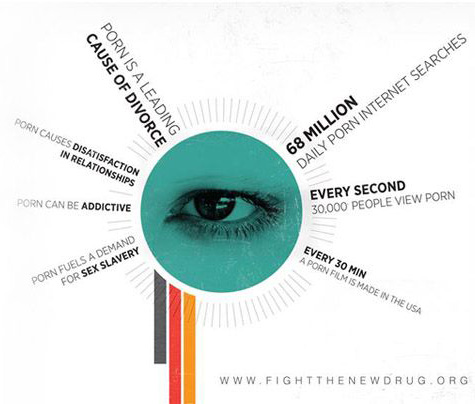“Pornography is harmful and research is proving it,” said Clay Olsen, during an address to a group of around 200 Calvin students last Tuesday.
Olsen is the co-founder of Fight The New Drug (FTND), a non-profit without any religious or political affiliations. According to their website, they “simply want to educate people on the harm that pornography can cause and then allow them to make an educated choice for themselves.”
Currently, pornography is often considered a casual habit; however, FTND wants to change the culture around pornography, from the connotation of something society is apathetic about to something people understand as a harmful drug.
“It rewires your brain, destroys your relationships and even degrades society as a whole,” said Olsen.
As Olsen explained, porn hijacks the reward pathway and rewires the brain for addiction.
In a world where explicit pornography is accessible anytime anywhere, Fight The New Drug is one of many organizations trying to shed light on the matter and help those addicted, who can be kids even as young as seven or eight years old.
Their use of a non-religious pedagogy is something that students, like sophomore Matthew Meyle, appreciated: “That was really refreshing because usually the Christian speakers at the sexuality series events don’t present many arguments you could use for non-Christians.”
Olsen and co-founder Ryan Werner started FTND in 2009 in response to research that they found stating the negative effects of pornography on individuals, relationships and society as a whole.
“We couldn’t believe that all this was happening and nobody was talking about it,” they say on their website. “We are the first generation in the history of the world to face the issue of pornography to this intensity and scale.”
The founders explain that by fighting pornography, people can change their lives for the better, but by perpetuating the information, they can change the future.
Olsen explained how addiction to porn is comparable to any other hard drug addiction, but with additional effects such as dissatisfaction in relationships, sexual dysfunction and physical aggression toward women.
“For the first time in this anti-porn argument, we’re starting to have concrete and undeniable facts about the negative affects of porn,” said Meyle.
“Porn is warping our collective ideas about sex and fueling the sex trafficking industry,” said Olsen. He also gave the statistic that porn users showed they had 88 percent physical aggression toward women.
“We have to stop sweeping this under the rug,” Olsen said, “this affects everyone in society.”
On campus, we have many such groups through the Broene counseling center to help men and women who are struggling with pornography. For more information men can contact Dan Vandersteen at dv23@calvin.edu, and the women contact is Cindy Kok at ckok@calvin.edu
Editor’s note: Anyone interested in watching this event, it can be found through livestream at: https://livestream.com/








